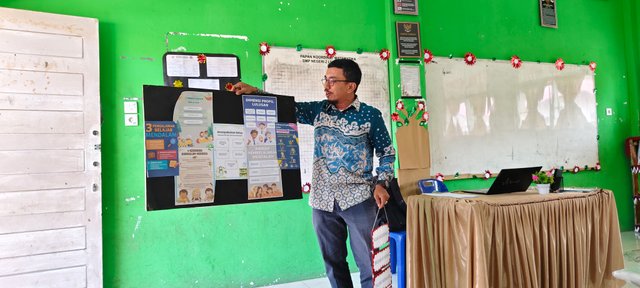
Classroom agreement isn't just a rule
When a new semester begins, I always feel like I’m opening a brand-new book. Fresh pages, fresh hopes, and fresh opportunities to create something meaningful with my students. From the very first day I became a teacher, whether under the old curriculum, Kurikulum Merdeka, or even today with the Deep Learning approach, one thing never changes: I always start with a Classroom Agreement.
Why Classroom Agreement Matters
For me, teaching English is not just about grammar, vocabulary, or exams. It’s about confidence. And confidence is exactly the biggest challenge for my students.
 My students and me
My students and me
Around 70% of my students come from the coastal area of Lhokseumawe, Ujung Blang, Pusong, Hagu selatan and nearby communities. Their world is full of hard work, fishing, and family responsibilities. For many of them, English feels like something far away. In fact, only about 10% of my students are really enthusiastic about learning English. The rest? They often struggle, not because they’re not smart, but because they don’t believe in themselves.
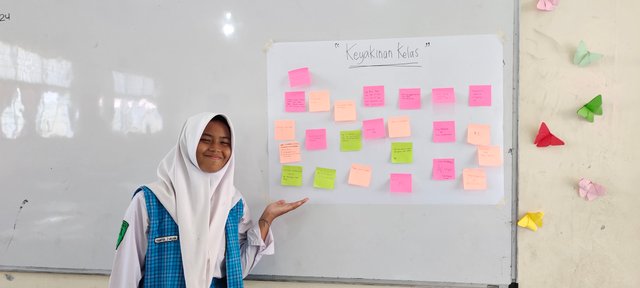 Classroom agreement is done
Classroom agreement is done
That’s why the Classroom Agreement is so important for me and my students. It’s not just a list of rules, it’s a foundation. It’s about building respect, courage, and support, so that every student feels safe to try, to make mistakes, and to keep practicing.
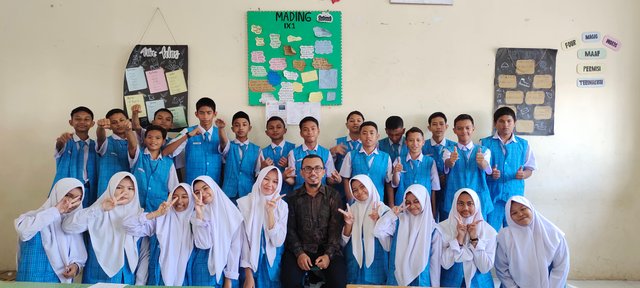
What We Agree Together
When we create the Classroom Agreement, I invite students to share their ideas. I don’t give them a ready-made list; we build it together. And after many discussions, year after year, these values always stand out:
Things We Must Do in Our Class
Respect Each Other
Respect is the foundation of learning. In my class, respect means listening carefully when someone else is speaking, not interrupting, and appreciating every effort, no matter how small. When students feel respected, they feel safe. And when they feel safe, they are more willing to try, even if their English is broken. Respect creates trust, and trust opens the door to confidence.
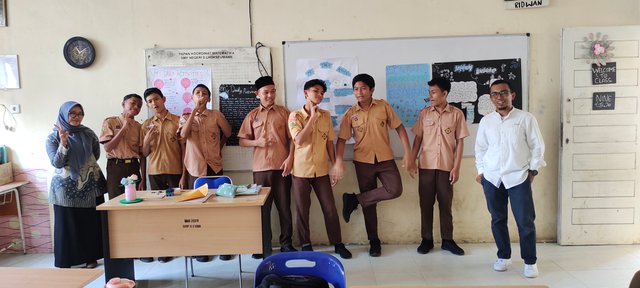 We are different but respect each other
We are different but respect each other
Be Confident
Confidence is the key to learning English. Many of my students feel shy, worried that their friends will laugh at their mistakes. That’s why I keep reminding them: “It’s okay to be broken, but it’s not okay to be silent.” In our agreement, we encourage everyone to speak up, because in this class, making mistakes is a sign of learning, not failure.
 Students do presentation confidently
Students do presentation confidently
Support Each Other
Learning is not a competition; it’s a journey we walk together. When one student tries, even if they only manage one word, the whole class claps and cheers. This simple act of support can boost someone’s courage tremendously. Support each other means lifting friends up, not pulling them down. It’s about teamwork, kindness, and shared growth.
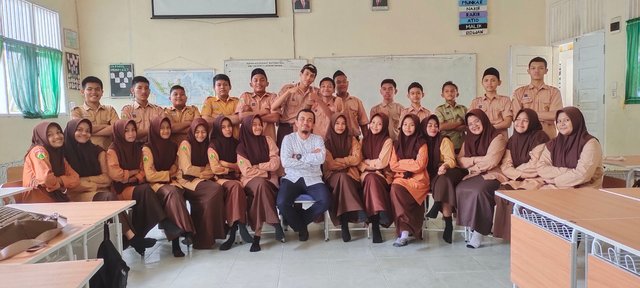 we are different but we are together
we are different but we are together
Keep Practicing
English is like swimming; you cannot learn it by just reading the theory. You have to dive in. In my class, practice is everything — speaking, repeating, playing language games, singing, role play, and more. Practice makes mistakes, and mistakes make progress. The agreement reminds students that consistent practice, even just a few minutes a day, will slowly build confidence and fluency.
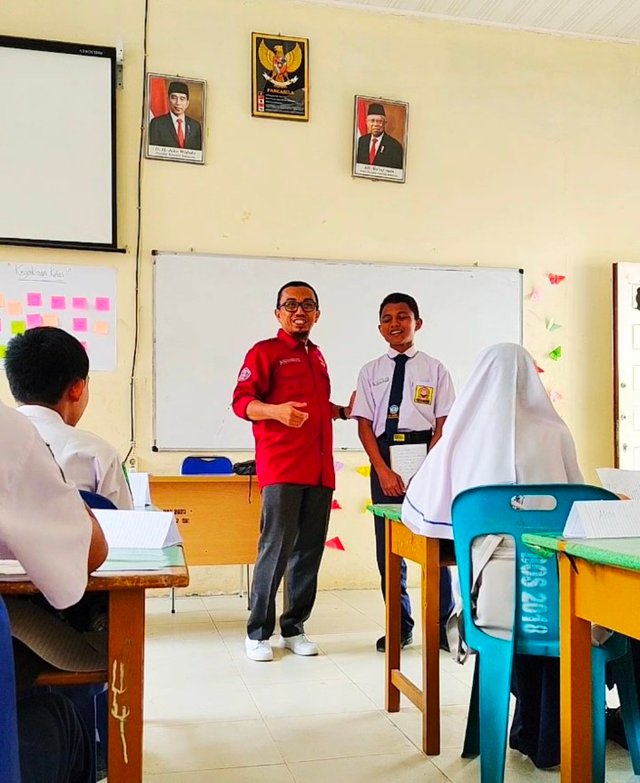 Keep doing your best
Keep doing your best
Be Honest
Honesty is not only about avoiding cheating; it’s about being real with yourself. If you don’t understand something, say it. If you need help, ask. Being honest in assignments and group work builds trust, and trust creates a healthy learning atmosphere. It’s better to fail honestly than to succeed by cheating, because real learning only happens when we are sincere.
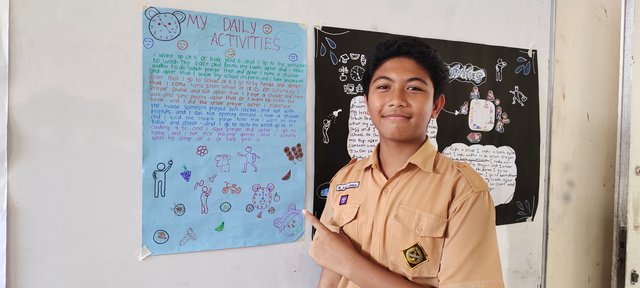 The student did assigment by himself
The student did assigment by himself
Things We Must Avoid in Our Class
No Bullying
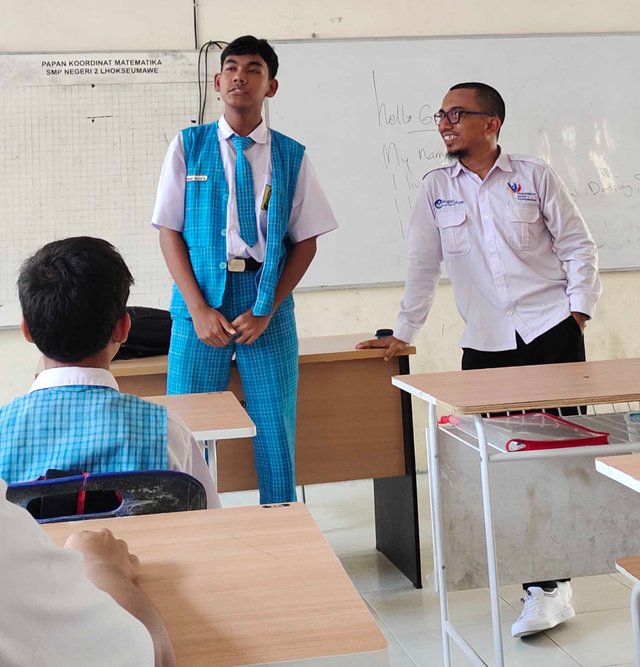
Making mistakes is human being
This is the golden rule. No laughing at others’ mistakes, no calling names, no making fun of accents. Bullying destroys confidence in a second, and confidence is exactly what we are trying to build. Our classroom must be a safe space where everyone dares to try.
No Cheating
Copy-pasting homework or whispering answers during a test might look small, but it kills the spirit of learning. Cheating teaches laziness, and laziness blocks progress. In this class, effort is more important than perfection.
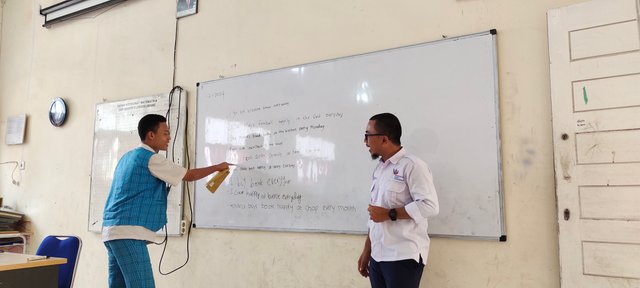 Be yourself
Be yourself
No Giving Up
English is hard, yes, but not impossible. Many of my students want to stop when they struggle. That’s why we agree: no giving up. Struggle is normal; quitting is not. Even if you can only say one word today, it’s still progress.
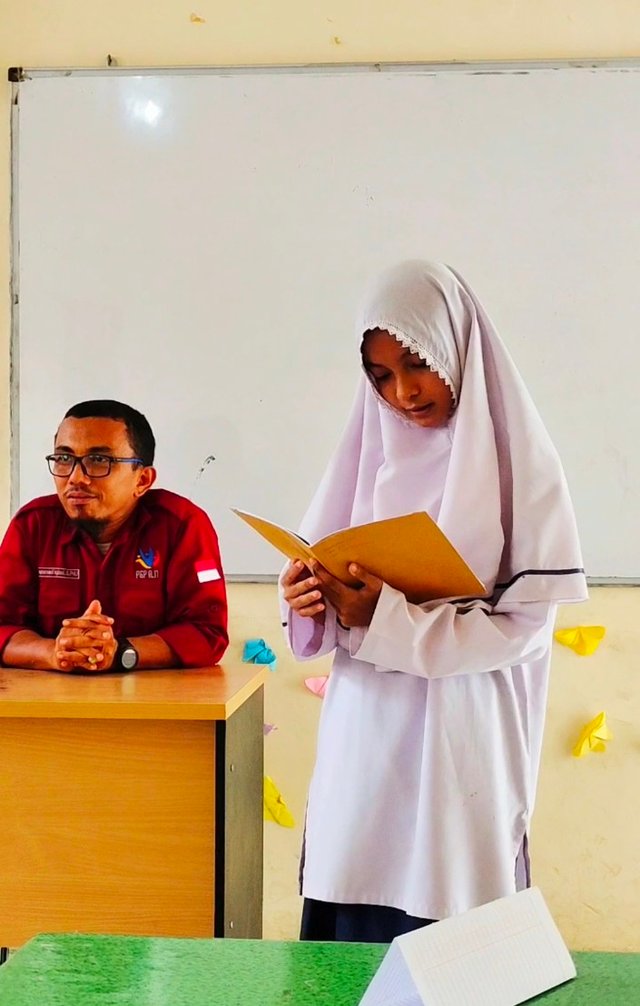 Keep trying your broken english
Keep trying your broken english
No Disrespect
Respect goes both ways. Students must respect the teacher, friends, and also the classroom environment. Talking while someone else is explaining, ignoring instructions, or damaging classroom property are all forms of disrespect. When respect is broken, learning becomes chaotic.
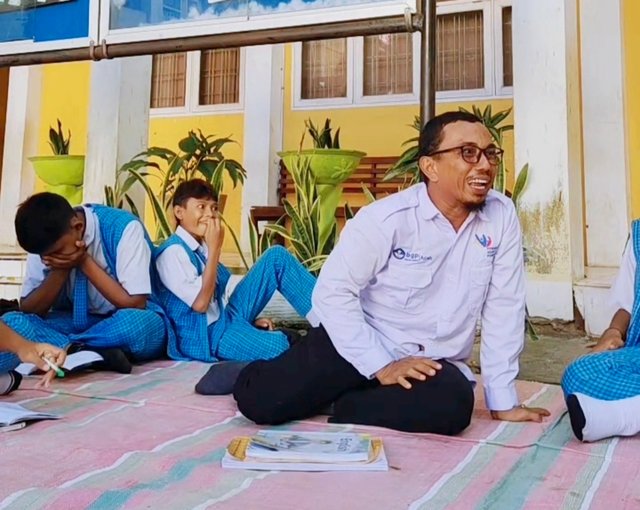 Student doing funny behind me
Student doing funny behind me
No Negative Attitude, be positive
Complaining, being pessimistic, or saying “I can’t” without even trying spreads negative energy. Attitude is contagious, if one student keeps complaining, others will follow. That’s why we agree: bring positive energy. Try first, then ask for help if needed.
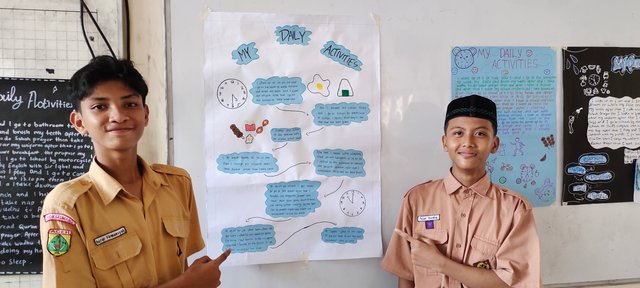 Good teamwork
Good teamwork
Reflection
For me, this Classroom Agreement is not only about discipline. It’s about creating a culture. A culture where students from the coastal community, who might think English is “too difficult” or “not for them” , can slowly realize that yes, they can.
And the most beautiful thing? Every time a student dares to speak, even with broken grammar, the whole class supports them. That’s the moment when English learning becomes more than a subject ,it becomes confidence, courage, and community.
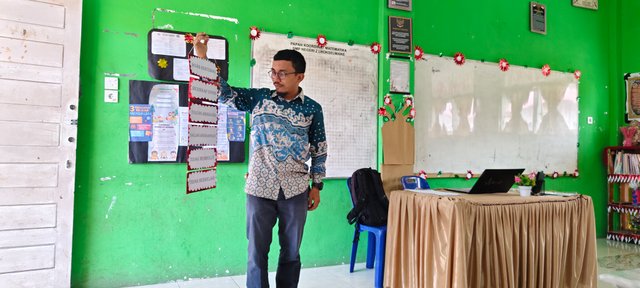 Classroom agreement is a must
Classroom agreement is a must
A Teacher to Remember
For three years, my students will learn English in junior high school. But maybe only one year they will learn with me. That’s why I don’t just want to be a teacher who gives them lessons, assignments, and tests. I want to be the teacher they remember.
Not because I am perfect. In fact, I am “the broken teacher”, the one who speaks broken English on purpose, just to show them that mistakes are not the end of the world.
I want them to remember me as the teacher who taught them:
- How to be confident, even when your English is broken.
- How to respect others, even when they are different, and
- How to keep learning, even when the road feels difficult.

Me and my students
If someday in the future, they no longer remember the vocabulary or grammar I taught, that’s okay. But if they remember the courage to speak, the kindness to respect, and the habit to keep learning, then I know my time with them has meaning.

Warm Regards @ubayiqbal

Smp Negeri 2 Lhokseumawe


















Upvoted! Thank you for supporting witness @jswit.